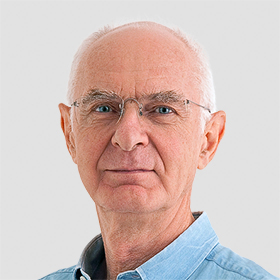Norman Levy, who has died aged 91, was an anti-apartheid activist who suffered arrest, torture and imprisonment in South Africa before two decades of exile in Britain and a return to his homeland after the end of minority rule. Back in South Africa he served on government commissions that concentrated on transforming the civil service and putting documents from the apartheid era into the public domain.
As one of the few white South Africans who sacrificed their economic and political privileges by joining the liberation movement, Levy was dubbed, rather clunkily, “a struggle icon” by the post-apartheid media. Pallo Jordan, a minister in Nelson Mandela’s first majority-rule government, described him as one of those who “rather than betray their basic principles threw themselves body and soul into the freedom struggle to strive for a non-racial democratic order”, adding that “there was a high price attached”.
Many veterans of the anti-apartheid movement have written memoirs, but Levy’s autobiography, The Final Prize (2011), is one of the finest. It graphically describes the tension involved in trying to maintain a normal family life while working underground in banned political organisations.
It also analyses dispassionately the arguments over the wisdom and effectiveness of armed resistance that constantly ran through the African National Congress (ANC) and the South African Communist party (SACP). In addition, it contains moving passages about Bram Fischer, Mandela’s former lawyer and secret leader of the SACP, who died in Pretoria Central Prison and with whom Levy spent three years as a fellow inmate.
Norman and his identical twin brother, Leon, who was also imprisoned during a long career as a trade union activist, were the youngest of four children of Mark Levy and Mary Witten, both from Jewish families who had emigrated to South Africa from Lithuania and started small businesses. Mark ran a fish shop and died when the twins were six.
Their impoverished mother took in lodgers to make money and brought up the children in Johannesburg, where they attended Athlone high school. Norman had friends in the Young Communist League and he started going to its weekly meetings from the age of 14. The key issue at the time was the threat posed by the Ossewabrandwag, a fascist faction in Afrikaner nationalism that openly sympathised with nazism.
With the second world war over, the left’s focus shifted to challenging the unjust laws and brutal practices that repressed non-white Africans after the National party won the 1948 elections and instituted apartheid. Working as a teacher, Levy helped to set up “cultural clubs” that provided alternative schooling after the ANC urged parents to boycott state schools following the 1955 Bantu Education Act, which introduced racially separated educational facilities.
In 1956 Norman and Leon were arrested and taken to the Old Fort in Johannesburg, where they were detained with 154 others, including Mandela, for what became known as the Treason Trial. All were acquitted in a fiasco for the government.
Unexpectedly free, Norman married Philippa Murrell, a trade union official, in 1958, and together they had three children – Deborah, Simon and Jessica. In 1964 Levy was detained again. He spent 54 days in solitary confinement in prison in Pretoria, where he was interrogated while forced to remain standing during three sessions of torture lasting 102 hours.
He was then tried, with Fischer and 12 others, for being a member of the outlawed Communist party and sentenced to three years’ imprisonment. Six days before his release in 1968, the government issued orders prohibiting him from work, meetings, participating in politics and social gatherings. He and Philippa then decided to move to the UK, where he worked as a lecturer, mainly at Middlesex University.
Modest and self-effacing, Levy had a puckish sense of humour and a gift for making friends. He never lost his curiosity and appetite for adventure. In 1972, while at Middlesex University, he and a colleague drove 20 students in a double-decker bus across central Europe to Moscow and back. The top deck’s seats were replaced with mattresses on the floor.
In April 1991, after the unbanning of the ANC and the Communist party, Levy returned to South Africa to work as head of the community and labour studies department at the University of Durban Westville. He and his team designed affirmative action guidelines for transforming the civil service before the 1994 democratic elections. He also created programmes that successfully trained African, Indian and mixed-race interns to fill senior posts in provincial and local government.
In 1996 Mandela appointed Levy deputy chair of the presidential review commission on the reform and transformation of the public service. He moved to Cape Town, where he became professor extraordinary at the school of government at the University of the Western Cape. He later served on an inter-ministerial committee charged with putting secret apartheid-era documents in the public domain. He also headed a ministerial task team on balancing secrecy and transparency in a democracy.
Although, like many other veterans, he became deeply unhappy about the level of corruption in the ANC, he never lost his loyalty or his optimism about the prospects for enhancing democracy in South Africa.
His marriage to Philippa ended in divorce in 1974. In 1991 he married Carole Silver, a literary historian from New York. She died in 2015. He is survived by Leon, Deborah, Simon, Jessica and a stepson, Tim.
• Norman Levy, anti-apartheid activist, born 7 August 1929; died 4 July 2021











